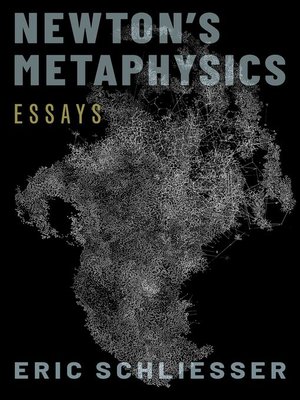
Sign up to save your library
With an OverDrive account, you can save your favorite libraries for at-a-glance information about availability. Find out more about OverDrive accounts.
Find this title in Libby, the library reading app by OverDrive.



Search for a digital library with this title
Title found at these libraries:
| Loading... |
In this collection of new and previously published essays, noted philosopher Eric Schliesser offers new interpretations of the signifance of Isaac Newton's metaphysics on his physics and the subsequent development of philosophy more broadly. Schliesser address Newton's account of space, time, gravity, motion, inertia, and laws-all evergreens in the literature; he also breaks new ground in focusing on Newton's philosophy of time, Newton's views on emanation, and Newton's modal metaphysics. In particular, Schliesser explores the rich resonances between Newton's and Spinoza's metaphysics. Schliesser presents a new argument of the ways in which Newton and his circle respond to the treatment and accusations of Spinozism, illuminating both the details of Newton's metaphysics and the content of Spinoza's. Schliesser provides a fine-grained analysis of some of the key metaphysical concepts in Newton's physics, including controversial interpretations of Newton's ideas on space, time, inertia, and necessity. Schliesser restates his provocative interpretation of Newton's views on action at a distance as he was developing the Principia. Newton's Metaphysics contains a substantive introduction, two chapters co-authored with Zvi Biener and with Mary Domski, new chapters on Newton's modal metaphysics and his theology, and two postscripts in which Schliesser responds to some of his most important critics, including Katherine Brading, Andrew Janiak, Hylarie Kochiras, Steffen Ducheyne, and Adwait Parker. The collection presents new and varied analyses on familiar focuses of Newton's work, adding important perspectives to the recent revival of interest in Spinoza's metaphysics.






